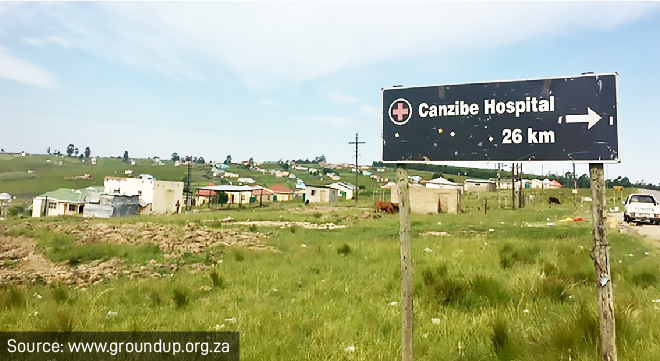The Department of Health (DoH) will seek to set aside the Pretoria High Court’s ruling that a certificate of need (CoN) is unconstitutional and invalid, saying the court’s decision has “serious implications” for the implementation of National Health Insurance (NHI), Business Day reports.
The judgment must go to the Constitutional Court for evaluation before the sections of the National Health Act that relate to the CoN – sections 36 to 40 – can be scrapped.
The sections forced healthcare practitioners to obtain a CoN from the health department to be able to set up a practice and provide health care in a specific area.
The department wants to use the certificates to shift doctors to rural and under-serviced urban areas.
Business Day quoted the health department’s spokesperson, Foster Mohale, as saying the DoH will seek a rescission of the judgment and challenge the matter in the Constitutional Court.
He said the ruling has “serious implications”, because “it will limit adequate access to healthcare services to the most vulnerable members of society and will have serious implications for the NHI and its implementation”.
The application against the sections was brought by trade union Solidarity, the Alliance of South African Independent Practitioners Associations (ASAIPA), the South African Private Practitioners Forum (SAPPF) and four healthcare practitioners.
They named Minister of Health Dr Joe Phaahla, DoH director-general Sandile Buthelezi and President Cyril Ramaphosa as respondents, none of whom opposed the matter.
In a ruling on 23 June, Acting Judge Thembi Bokako said the CoN scheme permitted the director-general of health to view healthcare personnel as “inanimate pawns in pursuit of the state’s objectives”, which was a violation of section 10 of the Constitution.
Section 10 states: “Everyone has inherent dignity and the right to have their dignity respected and protected.”
Acting Judge Bokako said, “the government must motivate young, intelligent people to enter the healthcare industry. They must want to be employed in an industry that assists the government in realising section 27(1) of the Constitution.
“But when government imposes a scheme that has all the problems identified in the founding affidavit, it disincentivises new entry into the profession. It operates directly against the attainment of greater healthcare service for the community.
“Government should take note that doctors are leaving the country – the government cannot promote the right to healthcare by making it undesirable for existing practitioners and new practitioners to render healthcare services.”
Although the state has a constitutional duty to take “reasonable measures” to further the progressive realisation of the right of everyone to healthcare services, Acting Judge Bokako said she was “not convinced” that the disputed sections were “coherent and consistent” with the primary objectives of the National Health Act”.
‘A major cornerstone of NHI’
Reacting to the ruling, Solidarity said it had “succeeded in taking down one of the major cornerstones” of NHI.
It said the state’s goal with sections 36 to 40 was “to pave the way for the NHI and to compensate for the bankruptcy of the state coffers”.
ASAIPA chief executive Dr Unben Pillay said the striking out of the CoN sections from the National Health Act was “a victory for us as health professionals in the interest of providing rational and affordable healthcare delivery without interventions”.
SAPPF chief executive Dr Simon Strachan said his organisation was “very happy” with the ruling but cautioned that nothing has been finalised, because it still needs to go to the Constitutional Court to be ratified.
“I don’t think anybody would deny that more healthcare providers are required in the rural areas, but the vehicle to achieve it is not this CoN. If we are going to have healthcare providers going into rural areas, the working conditions have to change to make them more favourable. There should be some level of infrastructure and support and job security and opportunities for families. It is a massive task, but it does start at the ground level to ensure that patients get the healthcare they require,” Dr Strachan said.



